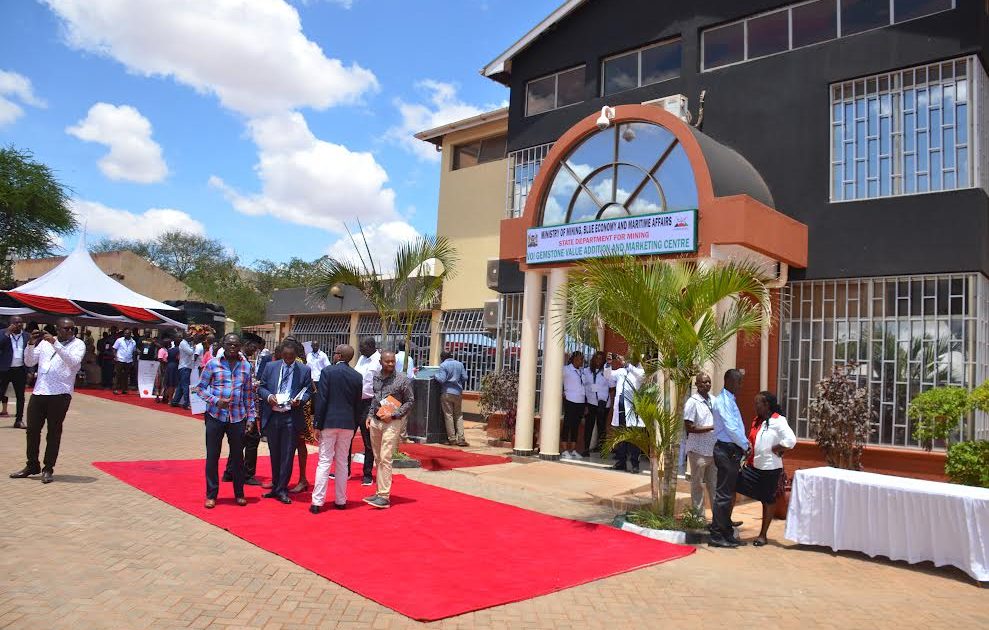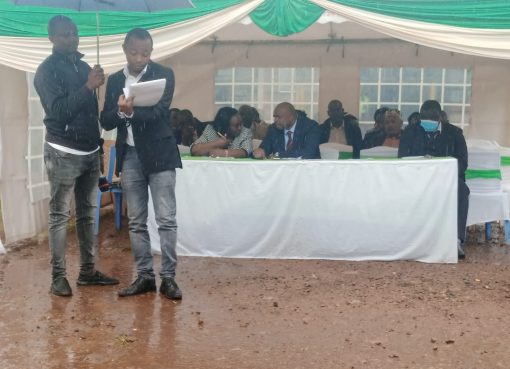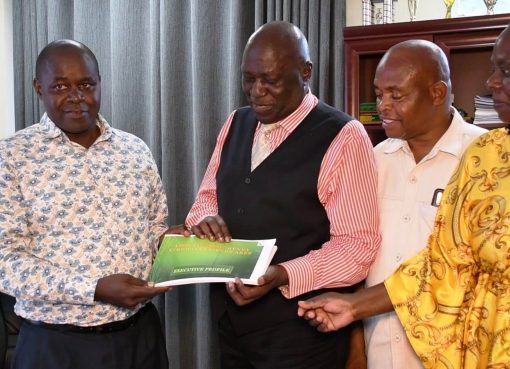For decades, they were the most despised and maligned group in the gemstone mining sector. They would derisively be nicknamed Zurura, an extremely derogatory name referring to artisanal miners making a living from the mining fields of Taita-Taveta County.
The mere mention of this name evoked dread and conjured up horrifying images of violent gangs of gem-crazed thieves that loitered aimlessly in a relentless hunt for gemstones to steal. They were considered so dangerous and unhinged that they could easily kill and maim just to possess the precious stones.
In return, the consequences were ruthless. They were hunted down and chased away from the mines. They were arbitrarily arrested for loitering and charged with trespass. They could not sell their stones openly because such stones were thought to have been stolen from somewhere.
Mr. David Zowe, the Chair of the Taita-Taveta Artisanal Miners Association, terms the brutal crackdown and harassment of artisanal miners as the darkest era in the history of the mining sector in the region.
“It was the worst time to be an artisanal miner. They were regarded and treated like criminals, yet they were just fathers and mothers trying to make a living from the resources nature gave them,” he says.
Today, such chilling tales make for a mere disquieting memory. The iconic Voi Gemology, Value Addition, and Marketing Centre stands as a permanent marker of the torturous journey artisanal miners have made from existing in total oblivion to the forefront of driving the agenda in the mining sector. The centre is a towering monument of pride and honour for thousands of artisanal miners who can freely mine and sell their products without looking furtively over their shoulders.
Constructed at a cost of Sh50 million and completed in 2016, the centre was officially opened on Friday by President William Ruto. The Head of State declared that the government had passed adequate laws to decriminalise artisanal mining activities.
“Artisanal mining is now a legitimate hustle. It will no longer be viewed as a criminal enterprise, and miners can now earn a living without fear,” said the Head of State, underscoring the government’s push to confer dignity to a once-maligned profession.
The formal recognition of artisanal miners as a key plank in revamping the mining sector points to the critical role miners are expected to play in the transformation of the economy.
By decriminalising artisanal mining activities, the government has cleared the regulatory obstacles and paved the way for the sector to thrive. The miners are now forming cooperative societies, a move that allows them to receive funding, training, and licences to mine gemstones inside Tsavo National Park. This is the first time artisanal miners are allowed to mine in the park. Owing to their protected nature, the parks are considered virgin grounds, holding vast deposits of precious stones.
The Mining Principal Secretary (PS), Elijah Mwangi, says only artisanal miners under cooperative societies will mine gemstones in the park for ease of control and supervision. Additionally, the department has procured a drilling rig that will exclusively be leased to mining cooperative societies at subsidised rates.
“The government is incentivizing the sector. We will support the artisanal miners through interventions aimed at promoting growth and sustainability,” he said.
To further support revenue by artisanal miners, the government has directed that dealers and brokers must transact inside the gemology. The artisanal miners are expected to get the real value of their products while enhancing the government’s revenue collection system from gemstone transactions.
The PS said the Gemology Centre was primarily a safe haven for artisanal miners to shield them against blatant exploitation by unscrupulous dealers who, in the past, made a killing by buying precious stones worth millions at throw-away prices.
“We are putting an end to the exploitation of artisanal miners. This centre will ensure they get the true value of their products,” said the PS.
The centre has state-of-the-art gemology and lapidary laboratories, a jewellery section, an exhibition hall for auctions, and dealers’ booths. It also has a banking hall and secure deposit boxes.
Ms. Irene Walowe, a miner, says exploitation occurred due to a lack of knowledge and a lack of proper structures to grade and price gemstones. With such services available at the centre, no miner is likely to be exploited.
“We will know the type, size, and value of our gemstones. This is what we have always asked for to avoid exploitation,” she said.
Taita-Taveta is home to some of the rarest gemstones in the world. They include topaz, rubies, tourmalines, and sapphires. The most expensive and rarest gemstone is tsavorite, which is only found in the region.
To increase revenue from value addition, the state has declared its intention of outlawing the export of raw and uncut gemstones. With the gemology centre engaging in the cutting, polishing, faceting, and sealing of stones, the government hopes to multiply its revenue by substantial margins.
Already, the interventions are bearing fruit. In 2023, the sector’s state earnings jumped to Sh3.7 billion from Sh1.9 billion in the previous year. The government projects that the revenue will increase to Sh15 billion and add the mining share to the national GDP from the current 0.9 percent to 10 per cent.
The PS says the government is investing heavily in the mining sector, which has become one of the key drivers of Kenya’s economic transformation. The recent categorization of minerals into two clusters—construction and industrial and strategic—is part of far-reaching policy reforms intended to unlock hundreds of billions in the next few years. The reforms come after the completion of the national aerial geophysical survey, which showed the country has 970 mineral occurrences.
With the ground-breaking exercise going on, projections indicate the state will unlock Sh 48 billion from constructing and industrial minerals and over Sh 100 billion from strategic minerals once investors dealing with those minerals are issued marketing permits.
Other areas the government is targeting for a value-added centre are a gold refinery in Kakamega, a granite factory in Vihiga, a fluorspar plant in Elgeyo Marakwet, a kaolin plant in the central region, an iron ore plant in Tharaka Nithi, and a cathode-making factory in the eastern region for processing copper.
As part of measures to tighten control and seal revenue loopholes, the department is recruiting 136 enforcement personnel to support inspection of mineral permits and licences at all ports of entry and exit. This team will be backed by a special police unit.
To further enhance compliance in the sector, the government will now classify smuggling, mining without licences, and transporting minerals without movement permits as economic crimes.
By Wagema Mwangi




